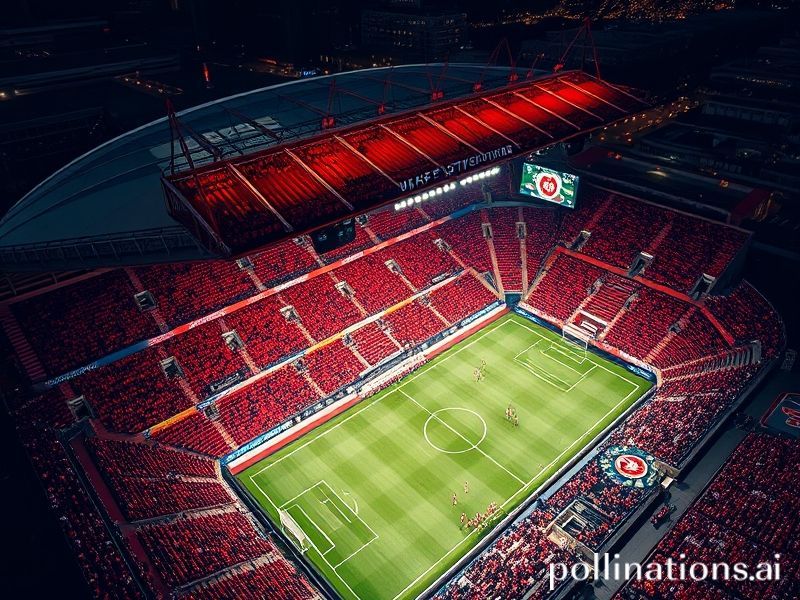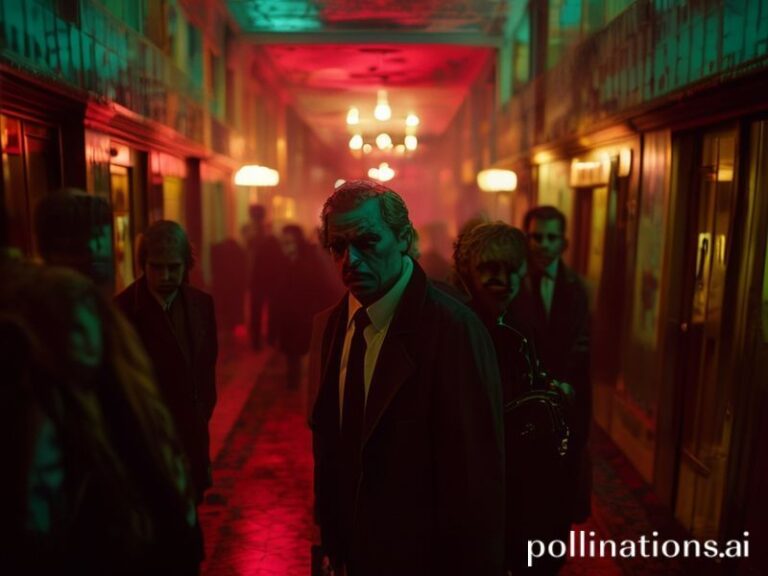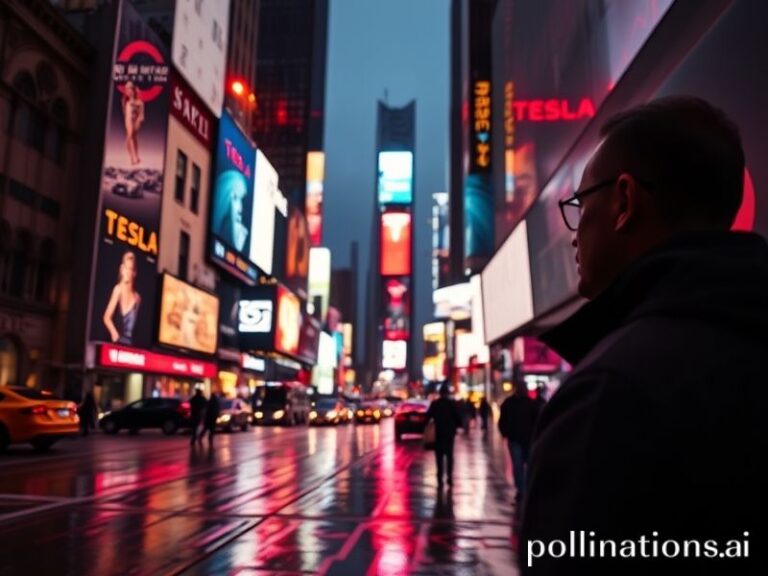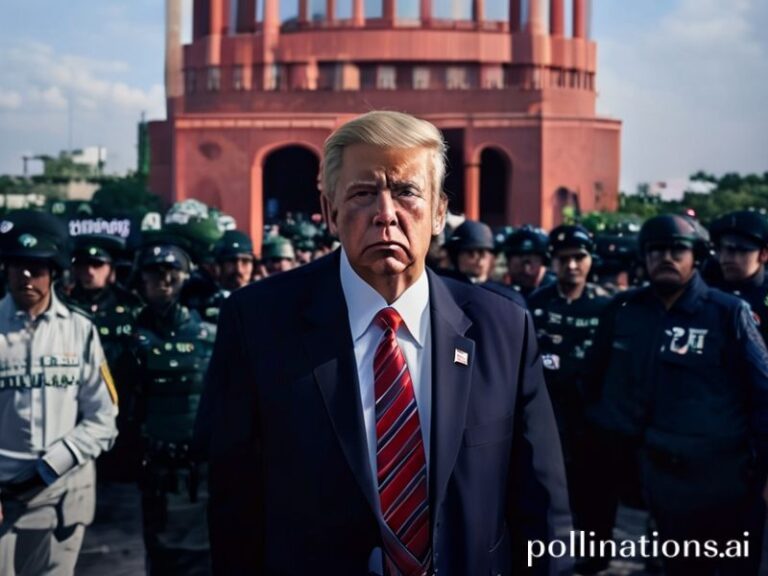Stuttgart vs St. Pauli: When Global Capitalism Puts Class War on the Fixture List
Stuttgart vs St. Pauli: A Tale of Two Germanies, Sponsored by Late-Stage Capitalism
By Dave’s Locker International Desk
Düsseldorf—From a safe distance, the Bundesliga fixture between VfB Stuttgart and FC St. Pauli looks like a simple Saturday afternoon collision of football philosophies: Swabian precision versus Hamburg anarcho-hipster chic. Zoom out, however, and the match becomes a geopolitical Rorschach test—inkblots shaped by everything from Qatari soft-power branding to Berlin real-estate prices. One club is owned by an automotive conglomerate that once equipped the Wehrmacht; the other flirts with Marxist slogans while selling €60 hemp-knit scarves. Both, naturally, accept cryptocurrency. Somewhere in the cosmic ledger, the ghost of Bertolt Brecht is updating his expense account.
Stuttgart, population 635,000, is a city that treats efficiency like a civic sacrament. Mercedes-Benz and Porsche ring the Neckar like medieval castles, pumping out SUVs heavy enough to flatten entire Balkan villages—collateral damage sold separately. The football team mirrors that productivity: a sleek, data-driven operation that can press high for 90 minutes, then immediately pivot to an investor call. Last season, VfB’s sporting director proclaimed “relegation is not an option,” a line that sounds less like motivation and more like a quarterly earnings forecast. One can almost hear the algorithm whispering, “Auf Wiedersehen, empathy.”
St. Pauli, meanwhile, occupies the Reeperbahn—Hamburg’s neon-lit carnival of sin where sailors, tech bros, and anarchists share kebabs at 3 a.m. The club’s skull-and-crossbones flag once signaled anti-fascism; now it also signals a lifestyle brand available at airport kiosks worldwide. Inside the Millerntor, the PA system blasts Bikini Kill before politely reminding fans that Mastercard is “proud to support inclusive football.” Somewhere, a marketing intern earns overtime calculating the carbon offset of punk rock.
The global implications? Start with the Gulf. Both clubs have flirted with Gulf-state sponsorship, because nothing screams “working-class solidarity” like a sovereign wealth fund built on liquefied natural gas. Stuttgart’s training kits bear the discreet logo of an Emirati logistics firm; St. Pauli’s fan council rejected similar money—then shrugged when their streaming rights were quietly sub-licensed through a Cayman Islands holding company. Meanwhile, the planet broils at 1.2 °C above pre-industrial levels, and nobody can agree whether to boo or applaud.
China watches too. Bundesliga broadcasts on iQiyi are censored for crowd banners—“Against Modern Football” is deemed subversive, while “For Modern Football” is apparently redundant. Beijing’s censors prefer Stuttgart’s orderly high press; St. Pauli’s choreographed tifos featuring menstrual cups and refugee silhouettes are replaced by stock footage of pandas playing keep-away. Somewhere in Shenzhen, a mid-level apparatchik notes that pandas also have black-and-white color schemes, files it under “synergy.”
Even the American hedge-fund class has skin in the game. Silver Lake Partners owns a slice of the Bundesliga’s international media rights; if Stuttgart’s American striker scores, the algorithmic trading desk in Connecticut pings bullish on German auto exports. If St. Pauli’s left-back flashes an Antifa banner, short positions open on European populism futures. Either way, the invisible hand is wearing fingerless gloves.
Yet for all the late-capitalist absurdity, the match still matters to people who can’t afford tickets. In Stuttgart’s outer districts, Turkish-German kids recite Silas Katompa Mvumpa’s sprint stats like scripture; in Hamburg’s Altona, Syrian refugees teach their toddlers the St. Pauli anthem phonetically. Both groups will stream the game on cracked Arabic-language sites that crash every time Bayern scores elsewhere. The global south, ever generous, pirates the spectacle so the global north can monetize the highlights.
When the whistle blows, 50,000 fans will chant contradictory dreams: one side craving order, the other craving revolt, neither quite achieving either. The final score will be forgotten by Monday. The jerseys, however, will remain—polyester fossils of a moment when the world tried to fit class warfare into a 4-2-3-1 formation and discovered the midfield still belonged to Visa.
And somewhere in the stands, a lone journalist will close his notebook, realizing the real derby is between hope and the invoice it arrives with. He’ll sigh, order another €7 stadium cola, and accept that even dystopia has concession stands.







